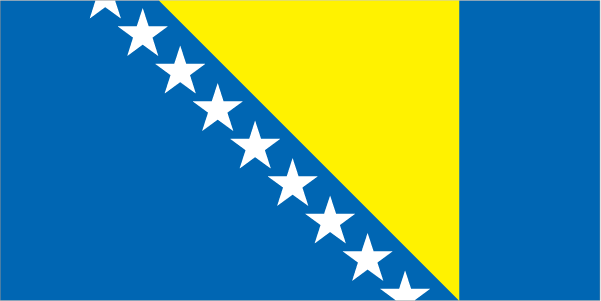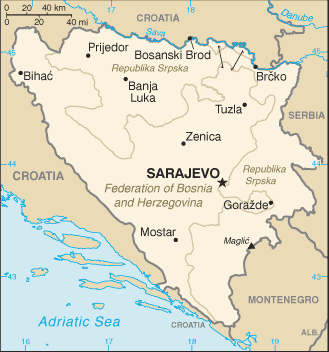Investing in Bosnia and Herzegovina


The interethnic warfare in Bosnia and Herzegovina caused production to plummet by 80% from 1992 to 1995 and unemployment to soar. With an uneasy peace in place, output recovered in 1996-99 at high percentage rates from a low base; but output growth slowed in 2000-02. Part of the lag in output was made up during 2003-08, when GDP growth exceeded 5% per year. However, the country experienced a decline in GDP of more than 3% in 2009 reflecting local effects of the global economic crisis. One of Bosnia's main economic challenges in 2010 has been to reduce spending on public sector wages and social benefits to meet the IMF's criteria for obtaining funding for budget shortfalls. Banking reform accelerated in 2001 as all the Communist-era payments bureaus were shut down; foreign banks, primarily from Austria and Italy, now control most of the banking sector. The konvertibilna marka (convertible mark or BAM) - the national currency introduced in 1998 - is pegged to the euro, and confidence in the currency and the banking sector has increased. Bosnia's private sector is growing, but foreign investment has dropped off sharply since 2007. Government spending, at roughly 50% of GDP, remains high because of redundant government offices at the state, entity and municipal level. Privatization of state enterprises has been slow, particularly in the Federation where political division between ethnically-based political parties makes agreement on economic policy more difficult. A sizeable current account deficit and high unemployment rate remain the two most serious macroeconomic problems. Successful implementation of a value-added tax in 2006 provided a predictable source of revenue for the government and helped rein in gray-market activity. National-level statistics have also improved over time but a large share of economic activity remains unofficial and unrecorded. Bosnia and Herzegovina became a full member of the Central European Free Trade Agreement in September 2007. Bosnia and Herzegovina's top economic priorities are: acceleration of integration into the EU; strengthening the fiscal system; public administration reform; World Trade Organization (WTO) membership; and securing economic growth by fostering a dynamic, competitive private sector. The country has received a substantial amount of foreign assistance and will need to demonstrate its ability to implement its economic reform agenda in order to advance its stated goal of EU accession. In 2009, Bosnia and Herzegovina undertook an International Monetary Fund (IMF) standby arrangement, necessitated by sharply increased social spending and a fiscal crisis exacerbated by the global economic downturn. The program aims to reduce recurrent government spending and to strengthen revenue collection.
Central Bank of Bosnia and Herzegovina - http://www.cbbh.gov.ba/
Countries that border Bosnia and Herzegovina: Croatia | Serbia | Montenegro
Learn more:
Back to Country Investing



